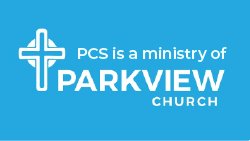Educational Philosophy
At PCS, we have a unique view of children and their development. Here are some of our distinctives that shape our curriculum and our approach:
- Children are born persons, made in the image of God who need to know that they are loved and respected. While our expectations are high and boundaries clearly established, our students feel comfortable and confident in knowing teachers want the very best for them.
- God has given parents the primary responsibility for the education of their children, and thus the school is to function as an extension of the home. This is the basis for our covenant relationship with parents and a high degree of parent involvement in our school daily.
- The development of Christian character takes precedence over the accumulation of knowledge and thus is our primary emphasis. This in no way diminishes the school’s commitment to the highest standards of education and academic excellence.
- God’s word is truth, and therefore, all academic subjects point our students to God’s word and a relationship with Jesus. Our goal is to make disciples who love learning!
- Building strong relationships happens best in small groups. Our student teacher ratio is 8-1 in the lower grades and 14-1 in the upper grades.
- God gives different gifts and even the same gifts in different measure to each of us and so we teach accordingly. Our students are more than a test score or a number.
- We give all students time to play and the freedom to be children.
- We use hands on activities to engage the learner and short lesson times so the brain does not “tune out”.
- Grades and rewards are de-emphasized which then strengthens the child’s interior will to work to the best of his/her ability.
- Artist, composer and nature studies enrich the curriculum. Our additional once a week classes are music, art, physical education, spanish and technology (only in grades 5-8).
- Borrowing from the educational philosophy of Charlotte Mason, a British educator in the late 1800’s,we use “Living books” (excellently-written, timeless, primary sources, biographies and diaries) as our sources for literature but also for vocabulary, grammar and the art of reading aloud. We also have children narrate or “tell back” what they have read or learned. This brain training lays the foundation for exceptional comprehension skills.
- Another focus from Miss Mason is the development of good habits. We realize that habits are constantly being formed in young people and therefore we focus on the good habits of attention, imagining, remembering, observation, punctuality and obedience.
- Each day is structured to be a joyous feast of ideas, discovery and exploration, that provides the learner with an anticipation of learning.




